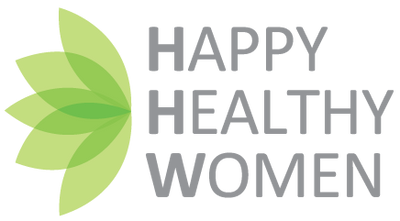The earliest published diet book dates back to 1864 when a notable English undertaker William Banting penned “Letter on Corpulence, Addressed to the Public”.
In it, he wrote, "Of all the parasites that affect humanity I do not know of, nor can I imagine, any more distressing than that of Obesity”. The book was mainly written to espouse his success in losing weight by replacing his excessive consumption of bread, sugar and potatoes with mostly meat, fish and vegetables. Since then, dieting has been so ingrained in people’s consciousness that in the 1920s, British American Tobacco even promoted a cigarette diet with its “For a Slender Figure — Reach for a Lucky Instead of a Sweet” campaign. Thankfully, we have seen the light of day, and this campaign no longer exists. That doesn’t mean we have seen the last of fad diets, though.
Suffice to say, fad diets are nothing new; they may even be as old as dieting itself. What makes it so sinister is that in more recent times, they have been masquerading as remotely science-based. An example of this is the Blood Type Diet where they claim that your blood type holds the key to the kinds of food you should be eating. With social media suddenly turning regular teenagers into unqualified dietary experts and bombarding the internet with false claims, it’s all the more worth noting that we should be wary of them as they often present more danger.
Why don't they work?
Most of the time, these fad diets encourage deprivation – cutting down on the food you enjoy to shave off the calories. It takes a look at body weight as the only basis for being healthy. Often, fad diets even mistakenly target certain foods or macronutrients, putting you at a higher risk of nutrient deficiency. Fad diets are also highly associated with an increased risk of eating disorders. According to the non-profit National Initiative for Eating Disorders, approximately one million Canadians fall under the diagnostic criteria for anorexia nervosa and other eating disorders – further proof that these fad diets have the potential to do more harm than good.
What can you do instead of going on fad diets?
Get moving
Don’t believe what most fad diets claim - there are no silver bullets to weight loss. Exercising is still a vital way to shed a few pounds and keep it off. Weight Watchers suggests that the best weight loss programs are flexible enough to help you find workouts that you'll actually love, not force a workout on you. You don’t even have to wake up at the break of dawn to get some exercise or get specific equipment. You just need to have over 21 minutes of activity a day. It can even include any activity that gets your heart rate up - including a quick walk around the park and even household chores!
Think about what you can add instead of what you have to take away
Most of the people who adopt fad diets do so because traditional diets, like counting calories, focus too much on removing certain food items from your diet. What you can do differently is introduce more fruits and veggies! Aim for 4 to 5 servings daily. If that seems too challenging, start small by adding a serving to one meal or grab a fruit as a snack. Fresh produce isn’t accessible enough? You can also have canned, frozen or dried fruits and veggies – but stay away from ones with added sugar and salt.
Have your favorites
Restrictive diets normally forbid you from eating dessert, which leads to cravings, bingeing and ultimately gaining more weight than you originally lost. Allow yourself to enjoy the food you love without the guilt. The key is to have things in moderation and, if possible, substitute! Craving for potato chips? Reach for that popcorn instead. It zaps that salty craving with fewer calories and additional fiber. Switch out your candy bars to protein bars – they both taste great and banish your hunger, but protein bars fill you up, something a candy bar could never do.
Seek expert advice
The internet has made it easy for us to access information but also made it equally confusing to wade through tips from self-proclaimed experts with no real subject matter knowledge. A good rule of thumb: if it sounds too good to be true, it probably is. Instead of spending time watching misleading TikTok nutrition trends, speak with a registered dietitian to help you set realistic goals and get sustainable dietary advice. Other good resources to have at the palm of your hand (or on your phone) are apps like MyFitnessPal that lets you add customized recipes and set your home screen to display the nutrients you care most about, like calories, carbohydrates, protein, sodium, and fiber. Another good one is Fooducate which makes it easier for you to find products that are better for you when you are not sure which brand or item to buy.
The key is consistency. Start with small dietary changes you can quickly implement to make sure you can stay on top of it. The longer you do it, the easier it gets. Once you get comfortable enough with the changes, introduce new ones.
Good luck and enjoy the journey!
Comments will be approved before showing up.
